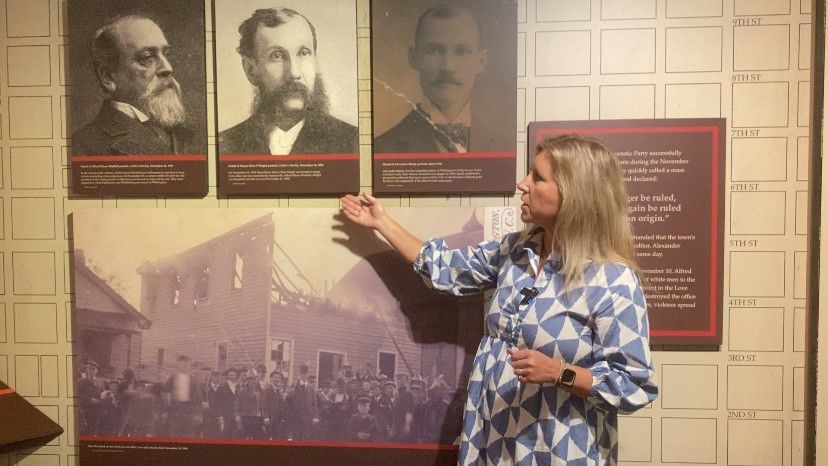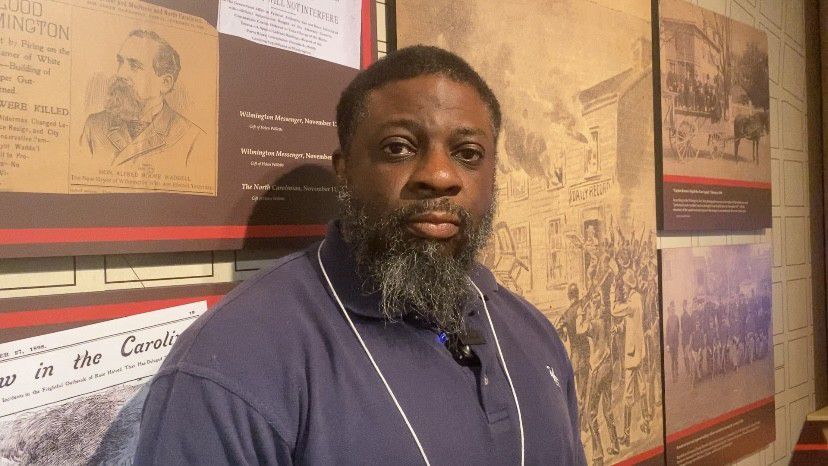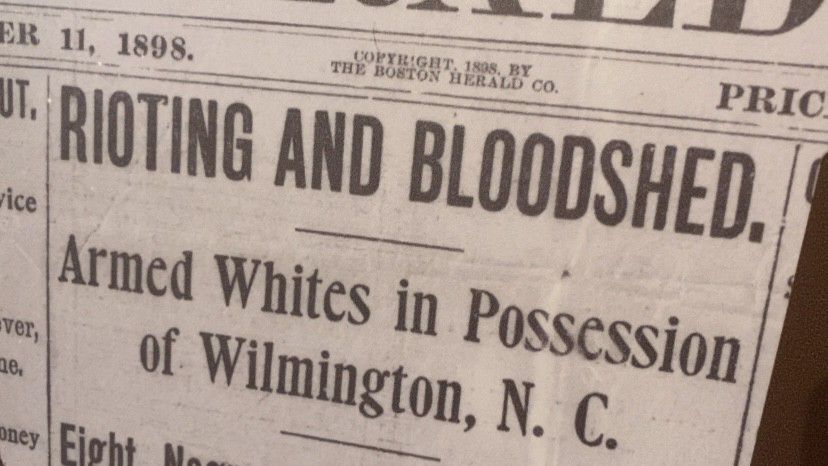WILMINGTON, N.C. — November 10, 1898 left its mark in history as the day white supremacists overthrew Wilmington’s primarily Black government, becoming known as the “Wilmington Massacre."
An unknown number of the city’s Black residents were killed or pushed out. It’s the only successful coup d’état in America’s history, yet for years it was hard to even find mention of it in a history book.
That’s why UNC Wilmington was chosen by the National Endowment for the Humanities to host a two-week summer institute for educators all about the events of 1898.
Cara Ward, an assistant professor of Social Studies at UNCW, said she grew up in North Carolina but had never heard about this event. Ward said the massacre wasn’t included in curriculum standards until over 100 years after the event.

“So in 2011, that’s the first time we see the events included in the standards, at the time they were actually still called a race riot,” Ward said. “We now more commonly refer to the events as a coup and massacre.”
The exact number of people killed on that dreadful day is still unknown, but estimates say anywhere from 60 to 300 people were killed.
“There were bodies that were buried very quickly in unmarked graves, there’s also reports that bodies were thrown into the river,” Ward said. “So we don’t know how many lives were lost that day.”
It’s difficult, emotionally taxing subject matter, but Ward said that doesn’t mean it shouldn’t be taught.
Those participating in the NEH two-week workshop have a goal of better understanding the horrific events that took place while learning how to best approach teaching this subject matter in the classroom.
Twenty-five teachers from across the country have been busy meeting with scholars, authors, filmmakers and even descendants of those who were killed in the coup.
“It’s a full workday, we’re really asking them to do a lot, we’re basically meeting 8:30 to 5:30 every day,” Ward said. “All of our teachers are creating activities, lessons, some are even creating full unite plans.”

Guy Hill, a teacher from Harnett County who is participating in the workshop, said he is excited to bring these stories back to his classroom, especially knowing that some students have never heard of the 1898 Massacre.
“It’s important to reveal those hidden histories,” Hill said. “And make sure that students are aware of those events."
Although it’s important to teach about the events of 1898 locally, the goal is to share this history on a national level as well.
“It’s not just important to Wilmington,” Ward said. “It’s important to every student across the country to learn about this moment when there was a failure of government and how we can learn in order to prevent things like that from happening again.”
Hill shares that sentiment, saying that understanding a difficult past is how future generations can create a brighter future.
“Connecting that history to other similar stories like what happened in Tulsa, Oklahoma in 1921,” Hill said. “So making sure students are aware of that and how they fit into the role of political and economic situations and how they can make sure that these events don’t repeat themselves in any aspect whatsoever.”

The National Endowment for the Humanities has awarded more than $5.5 billion to these projects since its inception in 1965.
The organization awards about 20 grants for summer institute programs per year.
Ward said this is the first time UNCW has hosted a summer institute since the 1990s. UNCW is hoping to have this opportunity again in the future, and in the meantime, plans on making lessons like this more accessible to educators everywhere.



